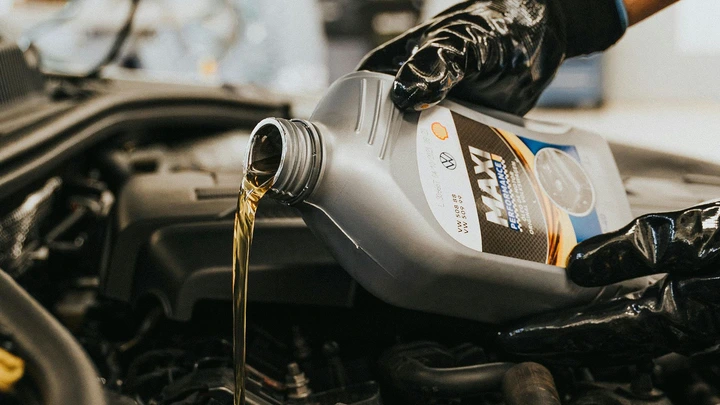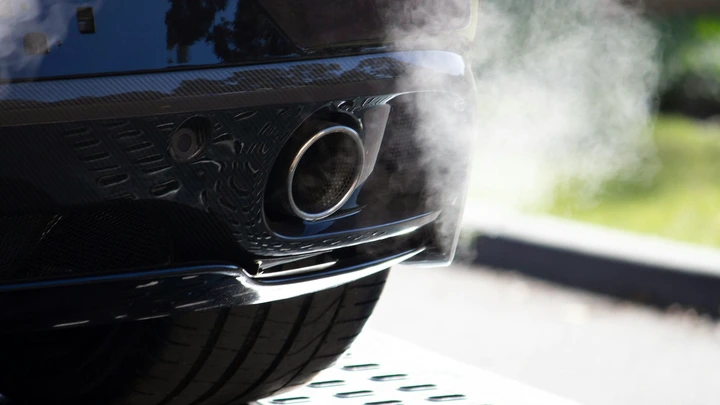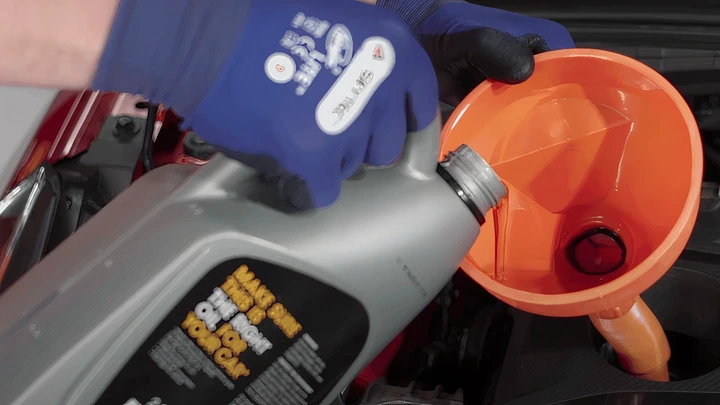Fast Access
Whether you're ferrying kids around and fetching groceries in a three-row SUV, or carving up canyon roads on the weekend in a track-prepared Lotus Elise – everybody wants their car to be reliable. It doesn't matter if it's a $500 beater or high-end supercar, regular maintenance is the key to prolonging the life of your car.

View pictures in App save up to 80% data.
Land Rover
Land Rover is an SUV-exclusive premium brand established in 1948 by the Rover Company as a maker of utilitarian 4x4 vehicles including the iconic Defender. Ownership changed multiple times between then and now, but since 2012, it has been part of the broader Jaguar Land Rover group (now JLR), which is owned by India's Tata Motors. Land Rover has remained steadfast in its production of SUVs only, now split into three sub-brands, Discovery, Defender, and Range Rover. Discovery models focus on the mainstream, Defender on off-road prowess, and Range Rover as the company's most luxurious vehicles.
- Founded
- 1948
- Founder
- Rover Company
- Headquarters
- Coventry, United Kingdom
- Owned By
- Jaguar Land Rover (JLR)
- Current CEO
- Adrian Mardell
The most important aspect of car maintenance is changing the oil; but what if you're in a rush - can you add oil to a hot engine? Here's everthing you need to know about adding engine oil to your car.
CarBuzz advises enlisting the help of a professional for all regular maintenance and services. Below are some expert suggestions on how to properly add engine oil to your vehicle. Keep in mind that this should not substitute for scheduled services or other necessary maintenance tasks.
The Importance of Oil in Engine Functionality

View pictures in App save up to 80% data.
Even for the less mechanically inclined, it's pretty common knowledge that car engines require engine oil to function. If you're wondering what role oil plays in your engine, you're asking the right questions. First and foremost, oil is a lubricator, and lubrication is essential in keeping your engine working efficiently. From crankshafts to camshafts, there are dozens of moving parts within your engine, and without oil, the friction and wear and tear on all those parts would mean your engine wouldn't function long enough to be useful. Friction also causes heat.
Thus, one of the main functions of engine oil is to keep the internal temperatures of an engine low. Irreversible damage will occur when an engine overheats; yes, coolant in the cooling system also plays a part here, but engine oil runs hotter and is pumped through the engine components to assist in the cooling process. Oil flowing around the engine also helps to keep seals supple, instead of sitting dry and going brittle; when this happens, oil leaks start to occur. Finally, oil also includes a number of key additives that clean the internals of an engine as the liquid flows around inside.

View pictures in App save up to 80% data.
Include CarBuzz in your Google News updates.
The Proper Quantity of Oil Is Crucial for a Joyful, Well-Functioning Engine

View pictures in App save up to 80% data.
When it comes to topping up or changing your engine oil, the right amount to add depends on how much is still in the engine, and what the capacity of your vehicle is. This varies, and you'll find the oil capacity figure in your car's owner's manual, but by way of example, here are examples of how it can differ on two cars in one lineup:
- 2024 Ford Mustang EcoBoost – 6 quarts with a filter
- 2024 Ford Mustang GT – 10 quarts with a filter
Insufficient oil levels can lead to inadequate lubrication, resulting in knocking or ticking sounds and potential overheating issues. If the situation is not addressed promptly, it can culminate in a hefty repair expense. On the flip side, overfilling the engine with oil can also be detrimental. Excess oil raises the oil pressure beyond safe limits, putting undue stress on internal components like the crankshaft and seals.
How to Add Oil to Your Car in 4 Simple Steps
This is one of the simplest routine maintenance tasks you can perform for your vehicle.
So, when it comes to changing, topping up, or simply checking your engine oil, it's imperative to consult the owner's manual and ensure the right amount is going in – be sure to double-check by dipping the dipstick and reading the new level. More modern cars will sometimes do without this, and instead you can check the oil level on the trip computer. When unsure, consult a mechanic beforehand – even if it's just for advice.
These Oily Warning Signs Indicate That Your Vehicle's Engine Requires Care
Regularly checking your oil level is an essential aspect of being a vehicle owner, yet many of us tend to neglect this task – even though we really shouldn't. Luckily, there are several warning signs that can alert you to potential problems. However, keep in mind that these indicators may not apply universally to all vehicles, regardless of their age, so it's important to consult your owner's manual for specific guidance.
Citrus Oil Glow
Keep an eye out for an orange or yellow oil warning light on your dashboard. This usually signifies that the oil level is low and needs to be replenished. The light is designed to alert you before the situation becomes critical, but it's important to respond quickly if it lights up to prevent the level from decreasing further. It's worth noting that a low oil light doesn't automatically indicate an oil leak; engines naturally consume a small amount of oil during regular operation.
Crimson Oil Indicator
A red or blinking oil light typically signifies low oil pressure rather than merely a low oil level. Insufficient oil pressure can rapidly cause internal harm, so it is recommended to safely pull over and turn off the engine at the earliest opportunity.
Azure Mist
Blue smoke from your exhaust indicates that the engine is burning oil. Some cars are known for burning oil, and even if your car is one of those, it's still best to try and stop it from happening to help prolong engine life. If you do have blue smoke from your exhaust, be sure to check your oil level regularly, as the level will drop through continued use.

View pictures in App save up to 80% data.
What Could Cause My Car to Smoke After an Oil Change?
There are several reasons why your car might be emitting smoke after an oil change. Here are some key factors to consider.
Engine Bay with Smoke
Smoke emanating from beneath the hood can indicate various issues, but it is frequently a sign of a coolant or oil leak. Each type of leak has its own unique odor and requires prompt attention. A coolant leak may result in engine overheating, while an oil leak can also cause similar overheating concerns, along with a host of other potential problems.
Loud Motor
A ticking or knocking noise coming from your engine compartment is a sign that should not be overlooked. It often suggests that your fluid levels may be low, leading to inadequate lubrication of the engine components. If you notice this sound, it’s important to check it out promptly.
Pouring Oil into a Hot Engine

View pictures in App save up to 80% data.
Adding oil to a hot engine is generally not recommended. Nonetheless, there are situations where waiting for the engine to cool is not feasible, and in those cases, it is acceptable to proceed. Ideally, oil should be added when the engine is at a cooler temperature for several reasons:
- The risk of hot oil splashing and burning you
- Cold oil being added to hot oil may not mix as well, leading to inconsistent viscosities
- Oil expands when hot, and so the reading on your dipstick will not read true
How long should you wait for an engine to cool down before adding oil? Typically, when you're topping off oil in a hot engine, you're likely in a hurry, making it unrealistic to wait for it to cool down entirely. However, if you can pause for about 10 to 15 minutes to allow the engine temperature to decrease, that would be beneficial. Additionally, keeping the hood open during this time can aid in the cooling process.
What occurs if you add oil to an overheated engine?
Is it safe to add oil to your car when the engine is hot? While there are some risks involved, like thermal shock from the cold oil mixing with the hot oil and the potential for splashing hot oil on yourself, these concerns are generally manageable. In most cases, it should be perfectly fine. However, it's advisable to let the engine cool down if you can, to minimize any risks.
Is it safe to add oil while the engine is running?
The same principle holds true in this situation – you can certainly add oil to an engine that is currently running, but doing so raises the likelihood of getting burned by splashing oil. Additionally, there's a greater chance of oil splattering into the engine compartment, which can cause unpleasant odors and smoke to emit from under the hood.
Sources: Ford, Mobil









